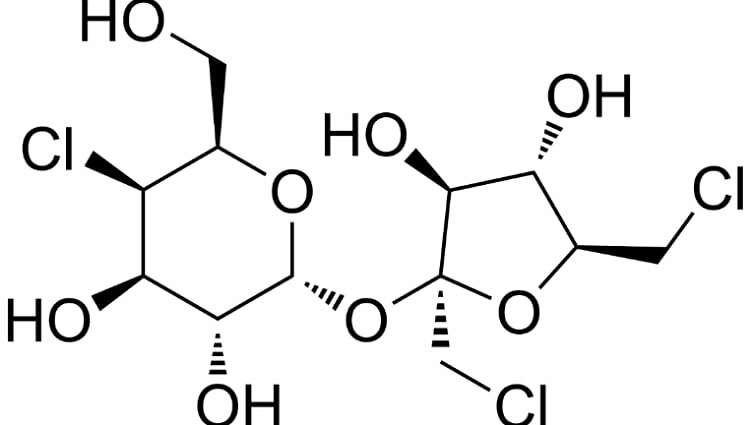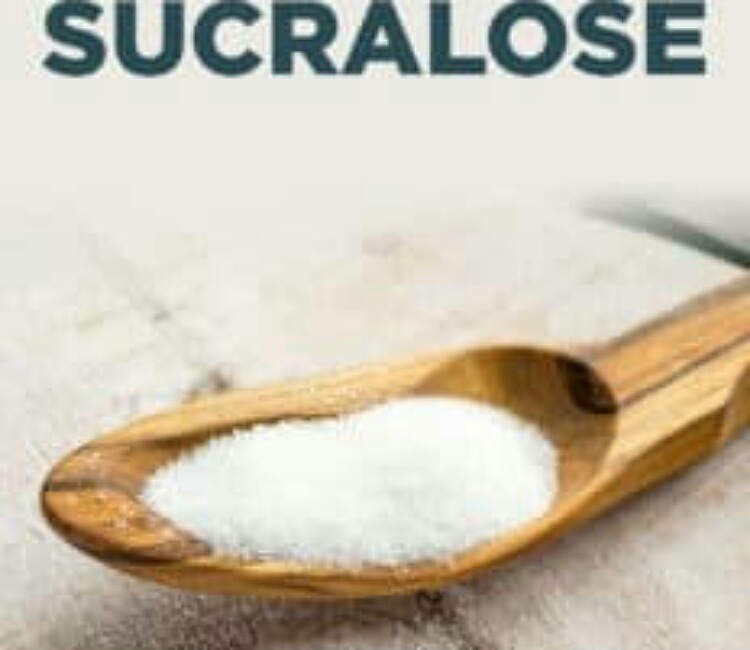Sucralose is an artificial sweetener. It has 600 times more sweetness compared to regular cane sugar. Its effects on the body are yet under investigation. But a new study from the Francis Crick Institute, London, the UK has revealed that this artificial sweetener can help treat patients suffering from autoimmune diseases such as type 2 diabetes.
Sucralose
Sucralose is a zero calories artificial sweetener. Most of it is not broken down in the body and thus adds no calories to the food. It is a sugar substitute and a chemical compound. The parent compound is regular sugar. In this, three hydroxyls are replaced by chlorine atoms in a multi step process.
Nowadays, sucralose is added to several foods and beverages in place of regular cane sugar. It comes under the trade name of Splenda and doctors prescribe it to diabetics. But though it is in use now for many years, the effects of this compound on the body is still under investigation.

Recently, researchers from the Francis Crick Institute in London, England, the UK conducted a study in mice to see the effect of the compound on T cells and immune response of the body.
The study details and findings
Sucralose is 600 times sweeter than regular sugar. The animal study is published in the journal, Nature. The mice were fed the chemical in doses that are acceptable and recommended by both the European and American food safety authorities. But these are not reached in humans by mere consumption of sucralose-containing foods and drinks.
And it was seen that mice on a high sucralose diet had lesser activation of their T cells to infection or cancer insult. However, other immune cells had no effect of this compound on them. One of the study authors, Julianna Blagih, said:
“We’ve shown that a commonly used sweetener, sucralose, is not a completely inert molecule and we have uncovered an unexpected effect on the immune system. We are keen to explore whether there are other cell types or processes that are similarly affected by this sweetener.”

Authors say
Group leader and senior author, Karen Vousden said:
“We’re hoping to piece together a bigger picture of the effects of diet on health and disease, so that one day we can advise on diets that are best suited to individual patients, or find elements of our diet that doctors can exploit for treatment.”
He added:
“More research and studies are needed to see whether these effects of sucralose in mice can be reproduced in humans. If these initial findings hold up in people, they could one day offer a way to limit some of the harmful effects of autoimmune conditions.”

However, another author, Fabio Zani cautioned:
“We do not want people to take away the message that sucralose is harmful if consumed in the course of a normal balanced diet, as the doses we used in mice would be very hard to achieve without medical intervention.”
“The impact on the immune system we observed seems reversible and we believe it may be worth studying if sucralose could be used to ameliorate conditions such as autoimmunity, especially in combinational therapies.”
Also, read Non-nutritive sweeteners can cause metabolic diseases: an analysis!
Karis Betts, the senior health information manager at Cancer Research UK feels that the data is preliminary. But it offers new treatment modality of patients of autoimmune diseases. However, he is happy that the study found no ill effects of the chemical on the body.
